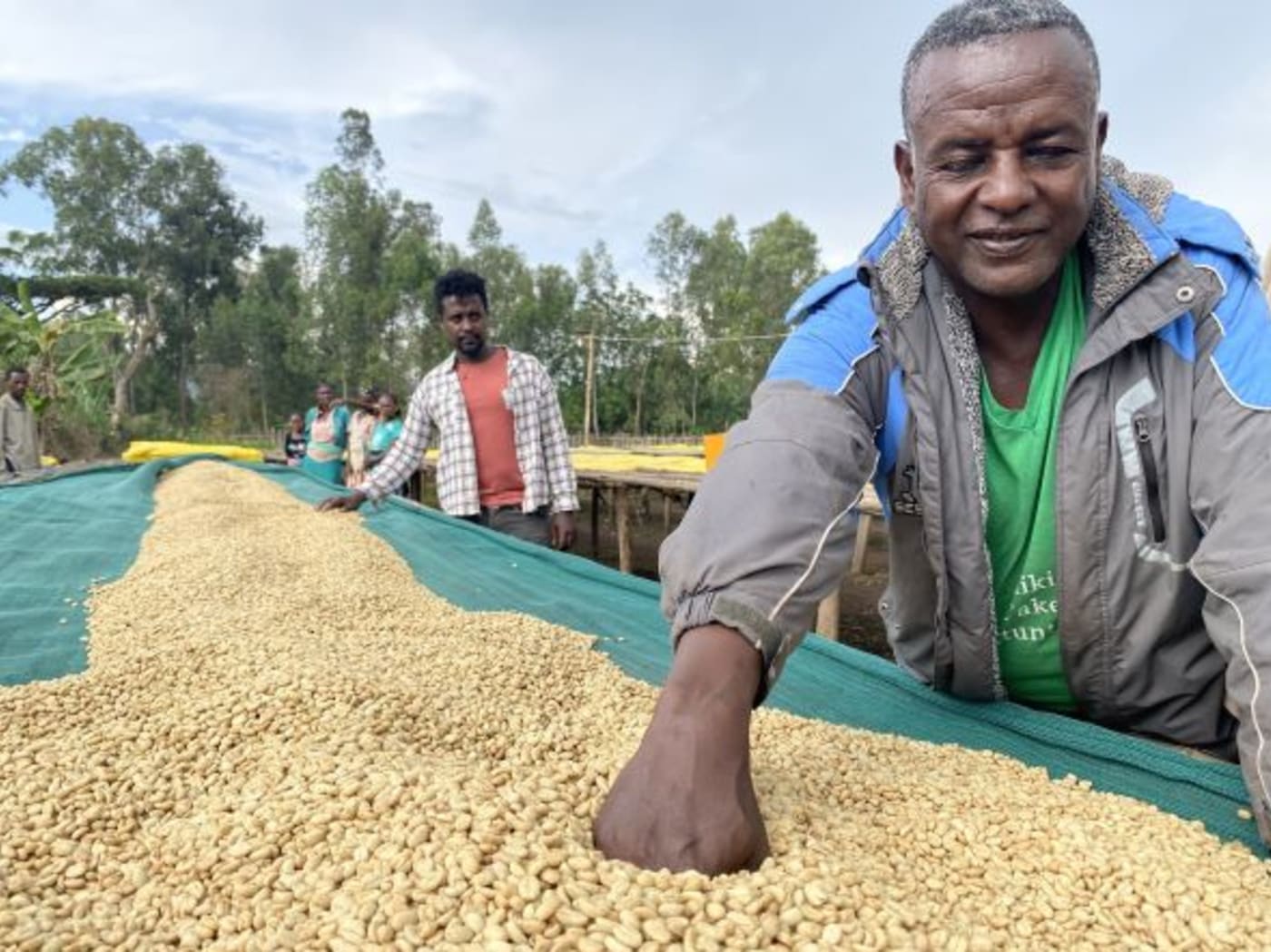Very Special
Girma Sintayehu, a long-standing member of the Jabanto farmers group, began his coffee farming journey in 1991 after trading commodities between Dilla and Biloya. His deep involvement in community activities and collaboration with agricultural experts helped him adopt improved coffee technologies and farming practices.
He cultivates coffee on a 4.92 hectare farm in Biloya and manages additional plots in Shashamene village, where he produces varietal-separated coffees. His income diversification strategy has been key to his success—investing in coffee farming, a restaurant, and transportation services. Girma has also expanded his coffee business by establishing a medium-sized coffee washing station on 4 hectares of land with a three-disc pulper, producing around 900 bags of parchment coffee annually.
Since 2020, he has introduced honey-processed coffee into his product line, demonstrating his constant drive for innovation. As a first-generation farmer, Girma has steadily acquired smaller plots and mastered rejuvenation techniques like coffee stumping with great success.
Beyond his own farm, Girma is a leader in the Biloya community, helping organize farmers and improve their access to knowledge and international markets. His forward-thinking approach and diversified income model have made him a standout figure in Yirgacheffe and Kochere coffee producing communities.

Today, Girma grows coffee on his own 7-hectare farm in the village of Biloya, and sometimes contracts it from other producers near the Sashamene village where he can source different subvarietals.
Honey Processing
Honey processing is a widely practiced coffee method that begins with the selective picking of fully ripened red cherries. After harvesting, the cherries are pulped to remove the outer skin, leaving the sticky mucilage layer intact on the parchment coffee.
The mucilage-covered parchment is then transferred directly to raised drying beds, where it is initially piled for about 8 hours before being spread evenly for uniform drying. Frequent stirring is essential to prevent over-fermentation and clumping of the beans. Throughout the drying process, defective parchment beans are removed by hand.
Drying typically takes 9 to 11 days, during which the beans are carefully monitored to reach an optimal moisture content of 9.5% to 10.5%.






